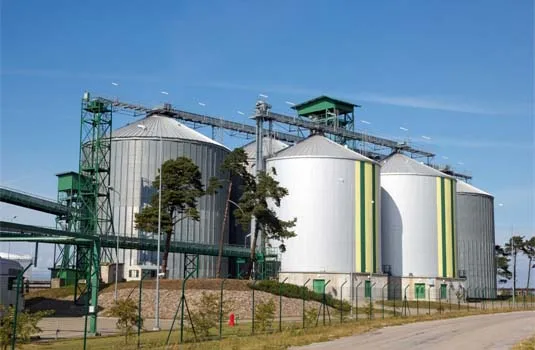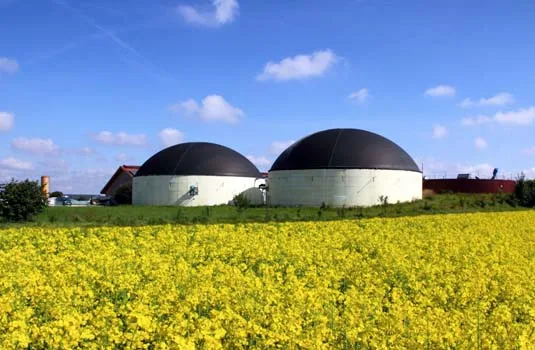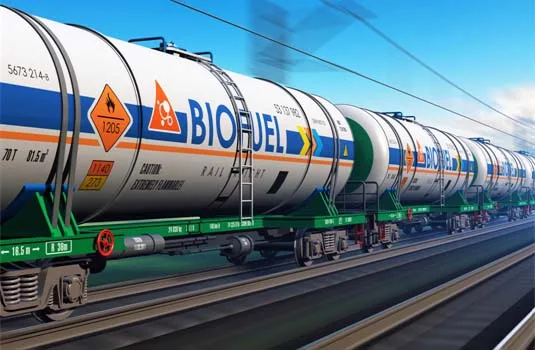Introduction to Biodiesel Fuel
New and innovative fuel sources are currently being developed in an attempt to find alternative energy sources to replace conventional fossil fuels. The effort is focused on finding a viable fuel source that would reduce our dependence on foreign oil and ultimately produce the next major source of energy.
The Growing Need for Alternative Fuels
Current national energy demands are exponentially increasing as we progress into the digital age and as the population increases. Consequently, the worldwide supply of fossil fuels is diminishing as a result of increased energy demands, and it is anticipated that these non-renewable fuel sources will become exhausted by the end of the century. This places a great importance on developing alternative ways of producing fuel. One such method that is currently being refined is using vegetable oil found in agricultural crops as the base for developing biodiesel fuels.

History of Biodiesel Fuel
Early Concept of Biodiesel by Dr. Rudolf Diesel
Biodiesel fuel was first conceptualized by the inventor of the diesel engine, Dr. Rudolf Diesel, in 1895. He demonstrated a diesel engine that used peanut oil as its fuel source in 1900 at the Paris World Exhibition.
Dr. Diesel’s Vision for Biodiesel Fuel
Dr. Diesel viewed using vegetable oil fuel as a means to provide economic growth in remote areas of the world due to widely available agricultural crops as the source of the fuel. He also speculated that the use of vegetable oils as a fuel source would, in time, become as important as oil and coal tar that was used extensively in his day.
The Challenges in the Early 1900s
The abundance of oil and coal tar in the early 1900s limited the viability of biodiesel; however, with the current depletion of worldwide fossil fuel supplies, biodiesel may become a necessary source of fuel in the near future.
How Biodiesel Fuel Works
Bio Fuel Production Plant
Straight vegetable oil found in soybeans, sunflower seeds, rape seeds, and palm oil can be used as fuel, provided engines are specifically built to handle the increased viscosity over conventional diesel fuel. However, instead of altering the type of engine, the viscosity of vegetable oil can be reduced through processing, thus allowing it to be used in conventionally built diesel engines.

Transesterification Process
Vegetable oil is converted to “biodiesel fuel” by reacting vegetable oil and alcohol in the presence of a catalyst. This reaction, known as transesterification, produces an alcohol ester that possesses properties very similar to petrochemical-based diesel fuel, including similar viscosities. Biodiesel fuel can then be used in standard diesel engines as the primary fuel source.
Advantages of Biodiesel Fuel
Renewable Energy Source
The major advantage of biodiesel fuel is that it is a renewable energy source and can be produced from spent oils, including by-products from other industries such as spent vegetable oil from restaurants.
Lower Emissions and Engine Longevity
The emissions from biodiesel engines are also significantly less polluting than standard diesel fuel as they contain little to no sulfur or carcinogenic benzene. Another advantage to using biodiesel fuel is that the lubricity is much higher than standard diesel fuel, reducing the wear and tear on engines and ultimately leading to longer engine life.
Disadvantages of Biodiesel Fuel
Technical Limitations and Consumer Confidence
There are a number of limitations preventing the widespread use of biodiesel fuel. Consumer and manufacturer confidence needs to be built by testing various formulations of diesel fuel in a variety of engine sizes and shapes. Some initial technical problems include winter operability, filter clogging, and the degradation of other rubber engine components.
Industry Standards and Supply Challenges
Other limitations include an acceptable industry standard for biodiesel fuel performance properties that can accommodate biodiesel fuel processing differences. Balancing the costs and availability of supplying biodiesel fuel to appropriate markets also remains a hurdle to widespread use.
Biodiesel Fuel in Power Generation
Potential Benefits for Power Generation
One particular market that could benefit from the development of a more environmentally efficient and friendly fuel would be the power generation industry. Diesel generators are used as a prime power supply in remote locations where connecting to a power grid is not readily available. For instance, oil and gas rigs utilize on-site diesel power generation as a remote power supply.
Engine Maintenance and Pollution Reduction
The diesel engines and generators are run continually, thus requiring maintenance to keep engines running like new. The increased lubricity of some biodiesel formulations has the potential to reduce the amount of engine deterioration and thus engine maintenance.
Stand-by Power and Environmental Impact
Diesel generators used to provide essential stand-by power (for facilities such as hospitals, data centers, etc.) during times of power outage would greatly benefit from using a less polluting fuel like biodiesel. These facilities are primarily in residential neighborhoods where pollution is unwanted.

Summary: The Future of Biodiesel Fuel
Biodiesel as a viable fuel alternative holds great promise as a sustainable energy source that could contribute to the nation’s growing energy demands. The numerous advantages that the fuel has should pave the way for further research to eliminate any current negative aspects of using the fuel. The United States is currently the world’s number two producer, behind Europe, of biodiesel fuel, and over $200 million a year has been set aside in the new energy bill for biodiesel research and development.
Additional Resources on Biodiesel Fuel
National Biodiesel Board
Visit the official site of the National Biodiesel Board for more information on biodiesel research and industry developments: https://www.biodiesel.org.
U.S. Department of Energy: Energy Efficiency and Renewable Energy
Explore the U.S. Department of Energy’s site for insights on renewable energy sources, including biodiesel: https://www.eere.energy.gov/afdc/fuels/biodiesel.html.
Willie Nelson’s Biodiesel
Learn more about the technical development of biodiesel through Willie Nelson’s Biodiesel: http://www.wnbiodiesel.com.